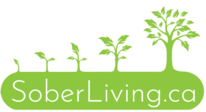
The Role of Nutrition and Exercise in Addiction Recovery
Addiction recovery is about more than just staying sober—it’s about rebuilding the body, mind, and spirit. Two key pillars in this holistic approach are nutrition and exercise. Both play a significant role in restoring physical health, boosting mental clarity, and creating a solid foundation for long-term recovery.
Whether you’re in early recovery or have been sober for a while, paying attention to what you eat and how you move can make a big difference in your progress. Here’s how proper nutrition and regular physical activity support healing and relapse prevention.
Why Nutrition Matters in Addiction Recovery
1. Replenishing What’s Been Lost
Substance use—whether alcohol, opioids, or stimulants—can deplete the body of essential nutrients. Many people in active addiction neglect eating altogether or rely heavily on processed foods. Nutritional deficiencies in vitamins like B-complex, magnesium, zinc, and amino acids can lead to:
- Low energy levels
- Poor concentration
- Mood swings or depression
- Weakened immune function
Restoring these nutrients through a healthy diet helps support the body’s repair process and improves both mental and physical well-being.
2. Stabilizing Mood and Cravings
Blood sugar instability is common in early recovery. When your blood sugar fluctuates rapidly, it can lead to irritability, anxiety, or strong cravings—all of which can trigger relapse. A diet high in complex carbs, lean proteins, and healthy fats stabilizes blood sugar and promotes emotional balance.
3. Supporting Brain Health
Nutrition plays a critical role in brain function. Nutrients like omega-3 fatty acids, antioxidants, and amino acids support neurotransmitter production and reduce inflammation—both of which are crucial for individuals recovering from addiction.
Foods That Promote Recovery
Here’s a breakdown of the best foods to include in your recovery diet:
- Leafy greens (kale, spinach, Swiss chard) – Packed with folate, iron, and fibre
- Lean proteins (chicken, fish, legumes) – Help rebuild tissues and balance mood
- Complex carbs (brown rice, oats, quinoa) – Maintain steady energy levels
- Healthy fats (avocados, nuts, olive oil) – Support brain and joint health
- Fermented foods (yogurt, kimchi, sauerkraut) – Improve gut health and immunity
- Fresh fruits and vegetables – Supply antioxidants and fibre
Pro tip: Avoid excess sugar and caffeine, as both can trigger anxiety and energy crashes.

The Role of Exercise in Recovery
1. Boosting Mood Naturally
Exercise triggers the release of endorphins—those feel-good chemicals in the brain that mimic the effect of certain substances. This natural “high” helps reduce stress and combat symptoms of anxiety and depression, which are common during recovery.
2. Reducing Cravings and Preventing Relapse
Regular physical activity reduces cravings by occupying the body and mind. It also provides a healthy way to cope with emotions and stress without turning to substances.
3. Rebuilding Routine and Structure
Establishing a consistent workout routine adds structure to your day—something many people struggle with post-rehab. It can also serve as a positive replacement for old, unhealthy habits.
Best Types of Exercise for Recovery
The key is finding a movement you enjoy. You don’t need to run marathons—just commit to being active in a way that works for your body and lifestyle.
- Walking or hiking – Gentle on joints, great for reflection
- Yoga or stretching – Enhances flexibility, calms the mind
- Strength training – Builds confidence and physical strength
- Swimming – Low-impact, meditative, full-body workout
- Group fitness classes – Build social connection and accountability
- Sports or recreational activities – Rediscover the joy of play
Aim for at least 30 minutes of moderate activity most days of the week. Start slow if you’re just getting back into exercise—progress is better than perfection.
Combining Nutrition and Exercise: A Winning Combo
When used together, proper nutrition and physical activity create a powerful synergy in recovery. Here’s what that can look like:
| Benefit | Nutrition | Exercise |
| Boosts mood | Balanced blood sugar, omega-3s | Endorphin release |
| Reduces relapse risk | Craving reduction | Stress relief & healthy coping |
| Supports sleep | Better digestion, reduced caffeine | Physical fatigue supports rest |
| Improves focus | B vitamins, hydration | Enhances mental clarity |
| Builds confidence | Healthy choices | Improved self-image |

How to Start a Healthier Recovery Lifestyle
You don’t have to overhaul everything at once. Here are a few simple steps to get started:
- Keep it realistic: Start with one or two healthy meals a day, and 10–15 minutes of movement.
- Track your habits: Use a journal or app to track your meals and workouts.
- Ask for support: Join a recovery group that includes lifestyle support or speak with a registered dietitian.
- Plan your meals: Prepping food ahead reduces the temptation to order unhealthy takeout.
- Celebrate progress: Every small win matters—build momentum through positive reinforcement.
Final Thoughts: Fueling Recovery for the Long Haul
Healing from addiction requires more than willpower—it takes rebuilding your life from the inside out. Nutrition and exercise aren’t just helpful extras—they’re essential tools in achieving lasting recovery.
At Sober Living, we believe in treating the whole person. Whether you’re looking to improve your physical health, reduce relapse risk, or simply feel better day-to-day, we’re here to support your journey.
Reach out to Sober Living today and speak with a professional about building a sustainable path forward.



